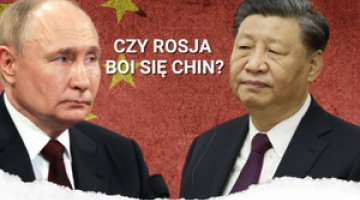Russia’s ’march of millions’: Putin’s opponents at a crossroads
On 15 September, the third ’march of millions’ organised by the opposition (liberal, leftist and nationalist) took place in Moscow; it was the first such protest action since the summer break. The march and rally, which were agreed with the Moscow mayor’s office, brought together between forty to fifty thousand participants, according to independent commentators.There were two notable ‘firsts’: the Communist Party of the Russian Federation officially joined the campaign’s organisers, and social demands emerged for the first time.
Commentary
-
The slightly smaller number of participants indicates that the protest in its current form is running out of steam, as it did not attract as much interest from the general public as the winter demonstrations did. The fall-off in Muscovites’ readiness to participate was influenced by the way in which the actions were organised – the march and the rally lasted several hours – as well as the fact that none of the demands raised by the discontented groups have so far been met. The attendance was also negatively influenced by the Kremlin-led legislative changes concerning public gatherings, as well as the much-publicised trial of participants in the 6 May march, which showed that the consequences of participating in anti-government actions can be quite severe. The fate of the protest movement will depend on the opposition’s ability to get people from broader social groups to participate in the protests, and not just the Russian middle class, which so far has made up the largest group of protesters.
-
The march demonstrated that the protesters’ demands have evolved, which in turn reflects a gradual change in the protests’ nature. In addition to raising the issues traditionally associated with the defence of democratic freedoms, on this occasion the protesters demanded solutions to specific social problems for the first time; that the government should freeze municipal charges, and raise the budget expenditure on education and health. These social problems have caused much concern among the general public, particularly at the prospect of the imminent economic crisis, and may have contributed to the rise in the Russian public’s dissatisfaction with the current government. By drawing on social rhetoric, the opposition is trying to increase its support before the local elections planned for October.
-
The ’march of millions’ has highlighted that the opposition movement involved in the protests has now split apart, and is unable to manage the growing dissatisfaction with the current Russian government. Although opinion polls show an increase in anti-Putin sentiments among the public and a need for changes in the Russian political arena, this has not translated into greater interest in the protests organised by the Kremlin’s critics. Their organisational ineptitude has been demonstrated by the fact that so far no formal leaders have emerged from the protests, nor have any joint institutions been established through which the opposition movement could participate on the political scene. Its next tests will be the online vote for members of the opposition’s Coordinating Council, as well as the local elections.





